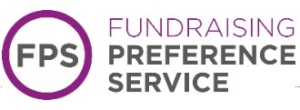CW88 – Reconciliation: Nehemiah, rural ministry and reconciliation
By Revd Dr Susan Salt
At first glance the account of Nehemiah rebuilding the city walls of Jerusalem appears to have little in common with rural ministry in the twenty-first century.
However, biblical historian Lena-Sofia Tiemayer has suggested that by the second half of the sixth century, the city’s population were scattered throughout the countryside surviving on subsistence agriculture.
Many Jerusalemites had endured occupation, famine, and outbreaks of disease. Dalit Rom-Shiloni, Senior Lecturer of Hebrew Bible at Tel Aviv University, has said: “Land orientation underlies the entire process of intergroup negotiations among the three Judean groups: the exiles, the repatriates, and those who remained.”
A not dissimilar situation faces many modern rural communities, balancing the need for housing, agriculture, the need for sustainable use of land and tourism.
Nehemiah was trying to rebuild a scattered community at a time when there was considerable tension between the returning exiles and those who remained. Old Testament scholar David M. Carr points out that those who returned had a shared “communal near-death experience of diaspora living” making them distinct from the poor of the land who had remained. He goes on to say, “before exile they had been marked as special by high positions, by genealogy, and often literacy”. Now these formerly elite exiles “felt that their nation’s downfall and decades of exile had been caused by the failure of past generations to achieve the kind of purity they had come to value during exile.”
Nehemiah rebuilt a wall to create an exclusive enclave for those willing to accept the Torah and its teachings as a key part of their faith, and as a guide to the way the community should conduct itself from then on.
There is a sense of similar, if less clear cut, expectations placed on those moving into some rural communities. Many such communities have a strong sense of identity based on geographical location and genealogy, particularly around farming and land-owning families. Those core members of a community may struggle with the categorisation of insiders and outsider and how to define what is required to be considered a ‘member of that community.’ When that sense of identity is under threat, for example because of expansion in new-build houses, then it is relatively easy to see how inclusive groups form networks to maintain their exclusive claim on the place they live and the values they perceive are important to the life of the village.
Contemporary rural ministry has a key role in reconciling the ongoing tension around identity by considering people’s desire to protect the identity of their community, whilst discouraging the creation of walls that exclude those who call the community their home but are not considered an ‘insider.’ Rural ministers need to find ways of encompassing those who live within the community but hold different or even opposing views to those of the ‘insiders.’
Part of the solution, which is also one that Nehemiah used, is recognising the differing circles of engagement, and belonging. Unlike Nehemiah where those circles involved family and occupational links, in a modern rural community is more likely to come from community groups such as the village hall committee, school or the walking group.
Finding ways to inhabit and build bridges requires a ministerial presence beyond the walls of their place of worship and an ability to build connections.










 Photo by
Photo by 